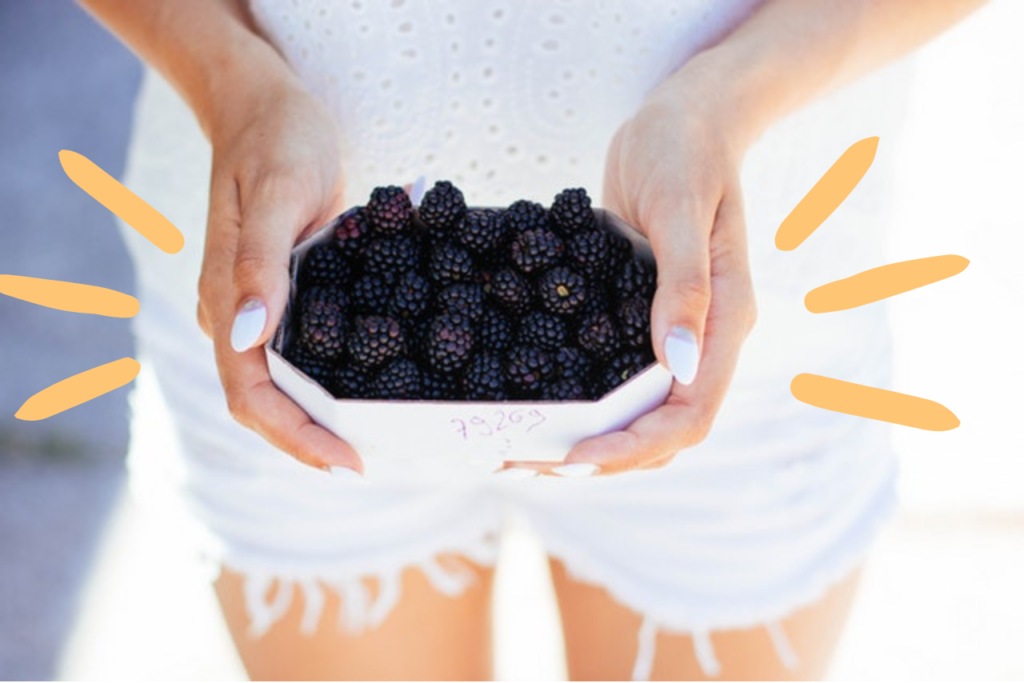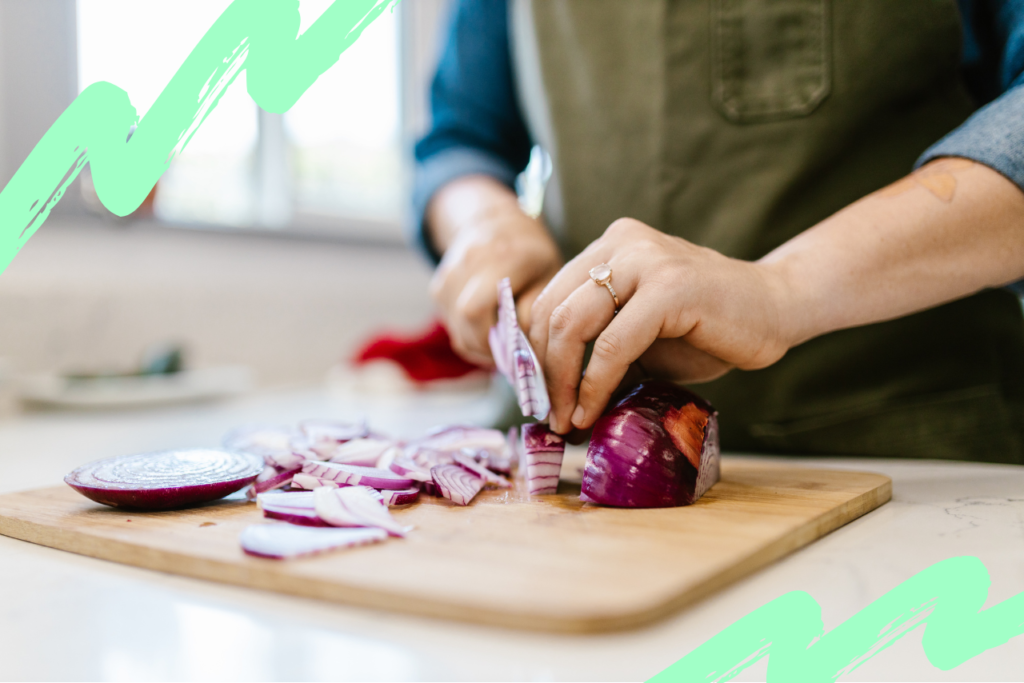A bright, vibrant smile can boost your self-esteem and leave a significant impression on anyone lucky enough to cross your path. However, to maintain properly pearly whites, you need to be conscious of your diet too. This is because some foods and drinks can cause severe staining and discoloration over time, whereas others can help promote a healthier and whiter smile.
With that in mind, let’s explore the worst (and best) culprits for staining your teeth.
The Worst Food & Drink For Teeth Staining
We hate to start negatively, but here are some food and drink items to avoid if you’re seeking brilliant white teeth…
Coffee & Tea
Tea and coffee both contain a group of compounds called tannins. Tannins are a type of polyphenol and break down in water. They are also found in various other foods and beverages, including wine and some fruits and herbs.
Tannins are responsible for staining because they cause colour compounds to stick to your teeth. When these compounds stick, they can lead to yellowish discoloration or stains. These stains can accumulate over time, especially if you frequently consume beverages like coffee or tea.
In addition to tannins, coffee also contains acids that can wear away at your tooth enamel, exposing the yellowish dentin underneath and making your teeth look more stained.
To help prevent these stains, consider drinking these beverages through a straw, rinsing your mouth with water after drinking, and maintaining good oral hygiene habits (and avoiding bad ones!). Regular professional cleanings can also help remove these stains.

Red Wine
We’ll tell you what else contains tannins; red wine!
Indeed, red wine can stain your teeth due to a combination of its natural colour compounds and its acidity. Here’s a more detailed breakdown:
- Tannins: Similar to tea and coffee, red wine contains those pesky tannins, too. These are plant-based compounds that tend to stick to the teeth, providing a rough, porous surface for chromogens to latch onto.
- Chromogens: These are intense, dark-coloured compounds found in red wine that are brought out during the process of vinification. Chromogens tend to bind to your tooth enamel, causing stains.
- Acidity: Red wine has a relatively high acidity level, which can erode tooth enamel over time. This erosion makes the teeth even more vulnerable to staining because it provides a rougher surface for chromogens and tannins to stick.
It’s worth noting that these factors together result in the more pronounced staining effect observed from red wine. Following up your glass of wine with water or cheese (which neutralises acids and provides a protective coating) can help mitigate these effects.

Coloured Soft Drinks
While most soft drinks have some potential to stain teeth due to their acidity and sugar content, some are more notorious culprits than others. Here’s what you need to know:
- Coca Cola & Pepsi: The dark hues from cola drinks can leave a lasting impression on your pearly whites. The distinctive dark chocolate colour of these drinks comes from a complex mix of colouring agents which can bind to the surface of teeth and leave stains, particularly if consumed regularly.
- Dark Coloured Sodas: Any soft drink with strong pigmentation – think grape or cherry soda – can potentially stain your teeth. Similar to colas, the colour additives in these drinks also bond with the tooth enamel, staining it over time.
- Sports Drinks & Fruit Juices: While not directly staining the teeth, their high acidity can erode the tooth enamel, revealing the darker dentin layer beneath. This can give the teeth a yellowed appearance and increase their susceptibility to staining by other foods and beverages.
- Energy Drinks: These don’t just pose a risk through their high sugar content and acidity. Many energy drinks also have robust colours, and regular consumption can lead to staining.
The combination of these drinks’ acidity and dark colour can turn your white teeth to a dull grey or yellow over time.
This erosive damage is cumulative, meaning the more often you consume these beverages, and the longer they stay in contact with your teeth, the greater the potential for harm. The best solution is to limit consumption of soft drinks, rinse your mouth with water after you indulge, or use a straw to reduce contact with your teeth.
Soy Sauce
Soy sauce is infamous for causing stains on teeth due to its high pigmentation and acidic nature.
Soy sauce is a strongly pigmented condiment. Just as it can leave stains on clothing or carpet, it can discolour your teeth. Its dark molecules adhere to the tooth enamel and gradually build up over time to create visible staining, particularly if consumed regularly without adequate dental hygiene.
Apart from its dark colour, soy sauce is also acidic. Acidic foods and drinks tend to erode the tooth enamel, which both makes the teeth more sensitive and creates a roughened surface that colour molecules can readily stick to. This enhances the staining effect.
Berries & Beetroot
Although loaded with antioxidants, dark-coloured berries such as blueberries, blackberries, and cherries can stain your teeth. Perhaps an even worse culprit, however, is beetroot. Both in juice and vegetable form, beetroot’s naturally strong pigmentation can cause staining fairly quickly. Just look at your chopping board after slicing one; now, imagine that staining on your teeth!

Curry Powder
Curry powder can yellow teeth over time due to its deep pigmentation. This is primarily down to turmeric, which seems to stain everyone an unmistakable orangey hue, but other spices, such as coriander seed and cumin, can also contribute.
The Best Foods & Drinks For Your Teeth
On to the good stuff. These guys might help your teeth avoid excessive staining…
Water
Water helps wash away food particles and keeps your saliva levels high. Saliva is your mouth’s best defence against tooth decay because it contains proteins and minerals that counteract acids that can lead to cavities.

Natural Detergents
Though brushing and flossing are the most effective ways to maintain a gleaming smile, certain foods can also naturally clean your teeth and promote their white lustre. Here are a few so-called natural detergents you can incorporate into your diet:
- Apples: Known as ‘nature’s toothbrush’, chewing apples stimulates your gums and increases saliva flow which rinses away harmful bacteria that promote tooth decay and discoloration.
- Strawberries: These contain malic acid, a natural astringent that can help remove tooth discoloration.
- Celery & Carrots: Chewing on these crunchy vegetables stimulates saliva production which is the body’s natural mouth cleanser. The fibrous properties of these vegetables also clean between your teeth.
- Raw Onions: As surprising as it might seem, raw onions have powerful antibacterial properties that can eliminate bacteria that cause tooth discoloration.
- Cheese, Milk and Yogurt: Dairy products are high in calcium which strengthens teeth and gums. They also contain casein, a protein that helps to fight tooth decay and promote a healthy smile. Some cheeses, such as aged cheddar, Swiss, and Monterey Jack, can even help buffer the acids in your mouth, stabilising the oral environment by making it more alkaline, and reducing the risk of acid erosion on your teeth.
- Aside from adding calcium, eating cheese makes your mouth more alkaline, which reduces your chances of tooth decay.
- Pineapple: This is the only food containing bromelain, an enzyme that is also a natural teeth-whitening ingredient found in many toothpastes.
- Pears: Their high water content encourages saliva production, which helps to wash food debris away.
Remember, while these foods help, they are not replacements for a regular dental care routine, which remains essential for a radiant, stain-free smile.

Fruit Peels
Rubbing orange or banana peels on your teeth is claimed to lighten stains because of the peels’ acid content.
7 Steps To A Whiter Smile
Of course, none of this matters if you don’t put into practice good daily oral hygiene.
- Practise Good Oral Hygiene: Brush your teeth twice a day and floss daily to remove plaque buildup.
- Use Whitening Toothpaste: Specially formulated whitening toothpastes can help remove surface stains over time.
- Regular Professional Cleaning: Schedule regular dental cleanings to remove tartar and surface stains.
- Quit Smoking: Tobacco creates stubborn stains and harms your mouth’s ability to fight off infections.
- Teeth-Whitening Treatments: Consider professional treatments or over-the-counter products, such as teeth whitening strips, gels, powders and pens, or even a teeth-whitening water flosser for a fresh finish.
- Rinse Your Mouth: After eating or drinking, rinse your mouth with water to prevent staining substances from staying in contact with your teeth.
- Regular Dental Check-Ups: Regular visits to the dentist can detect any early signs of stained teeth.
The Bottom Line
Managing the colour of your teeth goes hand in hand with maintaining a balanced and conscious diet. Drinking water or brushing your teeth after consuming staining food or drinks can help minimise their staining impact. Remember, while maintaining a white smile is important, so is keeping your mouth and body healthy. So, don’t shy away from healthy coloured foods, adapt your habits, and your teeth will thank you for it. Smile on!





